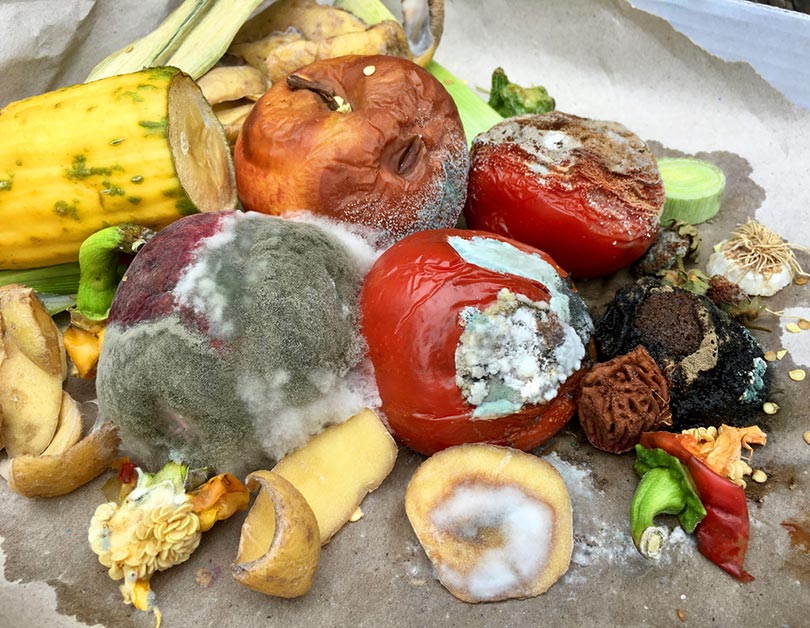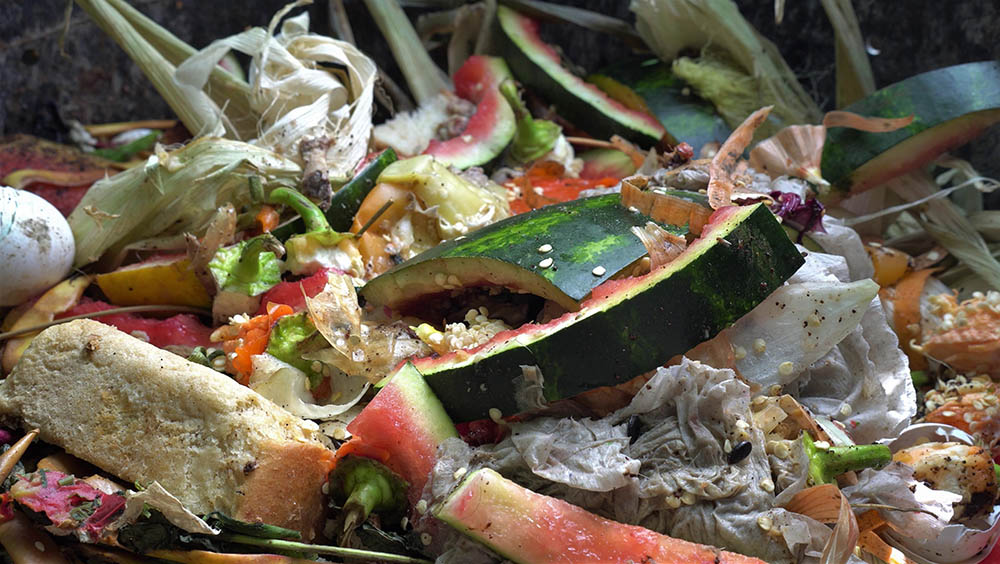Can You Put Moldy Food In Compost? Is It Beneficial?
-
Pete Ortiz
- Last updated:

Composting has many benefits for homeowners and gardeners alike. When people head out to put their kitchen scraps into their compost, they might find themselves pausing when they see spots of mold on their food. Composting utilizes food scraps to create natural soil and fertilizer, but can you put moldy food into a compost pile? Is mold safe for the compost?
You can put moldy fruits, vegetables, and bread into a compost pile, but you won’t want to put any other kind of mold into the compost. There are also some compost piles that should not have any mold put into them. If you have a typical kitchen compost pile, you can safely add your moldy fruits and vegetables to it without worrying.
 Composting Is a Great Destination For Many Moldy Foods
Composting Is a Great Destination For Many Moldy Foods
No one is going to eat moldy food. Whenever mold appears on something in the kitchen or the pantry, it is time to throw it away. Moldy food can lead to a lot of food waste. Nothing is more disappointing than seeing perfectly good food grow mold before it goes bad. Instead of throwing away the moldy food, you can compost it. Composting otherwise good food is a great way to cut down on food waste. Food waste contributes to landfills and loss of value for grocery trips. Reusing moldy food as compost gives it a second purpose that helps alleviate the waste factor when mold appears.
But not every piece of moldy food can be composted.

Fruits and Veggies Only
The safety of mold in compost piles only extends to fruits and vegetables. Do not put any moldy meat, dairy, eggs, fat, oils, or paper into a compost pile. The kinds of mold that grow on these types of things are not good for compost. The mold that most commonly grows on fruit and vegetable scraps is safe for compost, but not all mold is completely safe. Other plant-based things like nuts could also be added to the compost pile but never add anything with mold that is animal-based. The rule about moldy compost only works for plant-based materials.
Dairy products commonly grow mold in the refrigerator, but you should never put dairy products into any compost pile, especially not moldy dairy. The mold that grows on animal products differs from mold that grows on plants. Moldy animal products can quickly ruin a compost pile by making it smell, attracting pests, and throwing off the internal environmental balance.
Don’t Feed It To The Worms
Vermiculture is a type of composting that involves composting with the help of worms. Worms help break down the food and paper scraps and create nutrient worm droppings. However, mold can throw off the environment that the worms live in and lead to the worms dying. The interaction between mold, bacteria, and the compost materials can create microscopic toxins that will harm or even kill the worms. If you have any worms in your compost pile, you should never add anything that contains mold to the pile.
Mold Can Be Beneficial
If you are not using worms, mold can be very beneficial to a compost pile. Mold only appears on items with sufficient organic material, and the environmental conditions in a compost pile are perfect for mold. Mold adds additional organic material and additional decomposition agents and gives your compost pile more biodiversity. All of these things, in the long run, can help keep a compost pile healthy. Mold can also help speed up the decomposition of certain items, which can produce more soil and fertilizer faster than piles without mold.
Conclusion
Mold fruits and vegetables can absolutely be composted safely. In fact, adding moldy fruit to a compost pile can have a variety of benefits. Never add moldy food to a compost pile that utilizes worms, as mold can kill the sensitive invertebrates. Moldy animal products should also never be added to any compost pile. Otherwise, mold can be a great addition to any composter.
Featured Image Credit: maerzkind, Shutterstock
Contents

 Composting Is a Great Destination For Many Moldy Foods
Composting Is a Great Destination For Many Moldy Foods